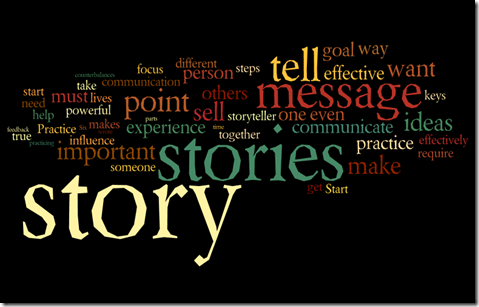Matthew Dicks's Blog, page 361
January 13, 2015
There’s nothing better than a little fire in your belly to keep you moving forward. Find something to hate.
“The rage you feel? Listen to me carefully. It’s a gift. Use it, but don’t let anyone see it.” – Nucky Thompson, Boardwalk Empire
Nucky may be a fictional character, but these are words of wisdom. I may not feel actual rage on a regular basis, but I’m also not a gangster and mob boss who traffics in violence like Nucky.
But whenever I’m feeling lazy or unfocused, I immediately redirect my attention on all the things that I I have spent my life working against:
The poverty that I have experienced many times in my life
The teachers and guidance counselors in high school who never spoke to me about college despite my excellent grades and laundry list of extracurricular activities
The former stepfather who did so much damage to my mother and my siblings and cost us our childhood home
The long, cold, frightening nights spent living in my car in Somerville, Massachusetts when I was homeless
The police officer who arrested me for a crime I did not commit
The hours spent in a tiny jail cell, awaiting my arraignment
All the McDonald’s customers who treated me and my employees poorly over the years because of our place of employment
The prosecutor who railed against me at my trial – calling me me a thief and a liar – while trying to strip me of my freedom
The college professor who told me that I probably wasn’t talented enough to publish novels and should think about a different career
The people with so many advantages in life – supportive parents, stable homes, parents who paid for their college tuition, family businesses that accepted them with open arms – who fail to do great things with their lives and good fortune
The anonymous villains who tried to destroy my teaching career
When I am not doing my best, working my hardest, trying like hell to succeed, these are the people I think about. These are the things that get me moving again.
While I don’t want my children to be impoverished or homeless or jailed or told that they aren’t talented enough to succeed, my hope is that they have a little fire in their bellies when they get older. A reason to prove someone wrong. Something that has hardened them and sharpened them a bit. Maybe a little anger residing somewhere within, kept hidden as Nucky advises, but always there, pointing them forward and onward to greater things.
Success really is the best revenge.
Insult advertising is the best
Selling more product is the goal of advertising.
Doing so while making fun of another slightly pretentious company – and a non-competitor at that – is the best.
January 12, 2015
Your future self wants you to be daring and adventurous. Don’t let the current version of yourself screw things up because it’s cold.
I went to the Patriots-Ravens playoff game on Saturday. Though I love attending Patriots games at Gillette Stadium, it’s not always easy.
I left my house at 10:45 AM and returned home around 10:45 PM. It’s a long day.
Prior to leaving the house, while I was dressed in my long underwear, my cat vomited on me. This might have happened regardless of my plans for the day, but it happened. It was a thing.
In a sad twist of fate, my friend received word that his cat was dying while we were on the way to the game. On Sunday, his cat was put to sleep.
It was about 15 degrees during our tailgate. We cooked steaks, beans, and loaded potato skins on a propane-powered grill. Less than 10 minutes after food came off the grill, it was cold.
The walk from the parking lot to our seats takes about 30-45 minutes depending upon the size of the crowd at the gates. It’s a battle through hordes of fans, and for a large portion of the walk, it’s uphill. Up about seven ramps to the upper deck and about 75 steps to our seats. By the time we finally sit down, we are stripping off our coats and hats because we are so warm.
The temperature dropped at game time. Factoring in the wind chill, it was about 5 degrees by the second quarter. Beers were freezing. I looked more like the Michelin Man than myself with the layers of clothing affixed to my body.
As soon as the game ended, we ran for the car. Beat the traffic out of the parking lot. Stopped at McDonald’s to strip down to civilian clothing, I discovered that my face was seriously wind burned. Then we began the 75 minute drive to my friend’s house and the 45 minute drive on my own to my house.
It’s a sacrifice, particularly when the game can be watched in the comfort of my home.
But I sitting in the stands for the 2015 Patriots-Ravens playoff game, and I will never forget it. I saw and heard things that I have never seen before in a footfall game.
I saw Tom Brady throw a pass to wide receiver Julian Edleman, who threw a pass to Danny Amendola for a touchdown. Strangers embraced me as Amendola crossed into the end zone. I’m not sure if I’ve ever heard the stadium so loud.
I heard referees announce that Patriots running backs and tight ends were “ineligible receivers.” “Do not cover number 34” a referee announced. It may have been the strangest in-stadium announcement in the history of the NFL.
I saw an unsportsmanlike conduct penalty called on the Baltimore bench. Though I’m sure this has happened in NFL games before, I had never seen it.
I watched a team come back from two 14 point deficits to win the game, the first time it’s ever happened in the playoffs.
I watched Tom Brady set the NFL record for passing yards and touchdowns in the playoffs.
I watched Bill Belichick tie Don Shula for the most wins by a coach in the playoffs. Next week, I hope to see him break that record.
Sure, I could’ve watched the game from my couch and been warm. Yes, I could’ve eaten a meal that did not go cold in minutes. It’s true, the hours spent traveling by car and foot to and from the game could’ve been better spent (though spending that time with one of my best friends wasn’t exactly a poor use of my day).
But I’m warm now. My belly is full. My face has returned to it’s normal color. And I have memories of time spent with a friend, watching history be made, that I will carry with me forever.
For about half a second, I had two extra tickets for Saturday’s game. My friend, who owns the tickets but was suffering from the flu, sold them quickly. But I had time to fire off some emails and text messages to friends to see if anyone wanted to join us.
Some already had plans. Some were out of state. One was anchoring SportsCenter in Dallas. But a few declined because of the cold. The travel. The effort required. The allure of the stupid box and the couch.
I feel bad for those who stay home for reasons like the cold.
You can always be warm tomorrow. You can take a nap and enjoy a warm meal the next day. But you can’t make memories like the ones I did on Monday. Sometimes sacrifice is required to witness greatness.
Maybe it’s crazy, but the 99 year-old version of myself wanted me at that game. My future self wanted me sitting in section 323, row 24, seat 5, alongside my friend, cheering on my team as the temperatures approached zero.
I try to listen to my future self whenever possible. You should, too.
Future you is always smarter than current you.
My Story of the Day exercise will change your life. I promise. And you’ll find a bunch of stories in the process.
Slate editor Allison Benedikt sent the following tweet around the holidays. Julia Turner, who was referenced in the tweet (Benedikt may actually be quoting her) is Slate’s editor-in-chief:
@juliaturner “You live your life. Most days are pretty much the same. You forget most things you’ve done. Then it’s over.” Happy holidays!
This tweet struck a chord for me.
For more than a year, I’ve been teaching storytelling workshops as part of Speak Up, the storytelling organization that my wife and I founded in 2013. In addition to the many things that I teach to storytellers, I spend a great deal of class time sharing strategies for generating new story ideas.
There is one exercise in particular that I love. In fact, whether you are a storyteller or not, this exercise can change your life forever. No joke.
Before I go to bed each evening, I sit down in front of my computer for five minutes and ask myself this question:
“If I had to tell a five minute story onstage about something that happened to me today, what would that be?”
Then I review my day, seeking out that one defining, possibly story-worthy moment. Oftentimes the moment is unspectacular. Hardly story worthy at all. But more often than you might think, I manage to find an actual story in my day.
It’s rarely a great story. Most of the time, it’s not even a good story. But it’s a story. Something that made this day different from the rest. Something possibly worthy of telling someday.
And sometimes, I find a great story. Something that I can’t wait to tell. More often than you might expect.
Once my story of the day has been identified, I record it in an Excel database, usually with a couple sentence fragments of description. Just enough detail to remind me of the story later on.
This is different than writing in a journal or a diary every day. Journals and diaries do not demand that you find stories. A diary or a journal entry can reflect a person’s thoughts and feelings for the day, but they do not require the purposeful search for story. They do not insist that the person seek a defining moment from every day of their lives.
It’s these defining moments that make all the difference. It’s the process of recording the stories of our lives that can change your life.
It’s changed my life.
Suddenly my days are no longer “pretty much the same.” No longer do I forget most of the things that I have done. Every single day of my life now contains the kernel of a story, and about once or twice a week, those stories are good enough to move over to my official database of story ideas, which currently stands at 194 items.
194 potential stories to tell. 194 stories good enough to tell.
I have no more forgotten days.
A storyteller who I adore once asked me why he never hears me repeat a story onstage. With 194 possible stories waiting to be told and a constantly growing list, why would I ever repeat a story?
At this rate, I’ll never get through the list that I already have.
Since I’ve been teaching this strategy to my students, I’ve witnessed some incredible results.
About a dozen of my students continue to do this exercise everyday. Twelve is honestly a pathetic number. I’ve probably taught more than 100 students over the past year, so my percentage of students committed to the process is low. But this process requires a commitment. It’s a five minute commitment, but for some people, even that is a lot.
More importantly, it also requires a great deal of faith.
You have to believe that the process will ultimately yield results. You have to believe that the five minutes spent each day are worth it, even after days when the best you can do are story ideas like these:
I make dinner. Hot dogs and macaroni and cheese. The only dinner I can actually make.
Taught Clara about the Rolling Stones while lying in bed with her. She likes the way Jagger dances.
Walked dog at 2:00 for the second straight night. Snowing.
These entries will probably not make good stories. If Clara turns out to be a Rolling Stones fan someday and we attend a concert together, perhaps the entry about her and the Stones will become relevant, but it’s unlikely.
But I remember each one of those moments clear as day.
I remember cooking my wife hot dogs and macaroni to surprise her after an especially hard day.
I remember lying in my five year-old daughter’s bed, listening to Satisfaction and explaining the difference between The Stones and The Beatles.
I remember the snow starting to fall as I walked around the block in my slippers, trailing my dog. It was cold and quiet, and I felt so lucky to be out there to see the first flakes, despite the hour.
Those days are not lost to me. They will never be lost to me.
The dozen or so people who continue to record their daily stories do so religiously. We have become a cult. All report that the process has changed their lives. Comments from my former students include:
“I’ve always wanted to meditate but was never able to. But this I can do. It’s like a form of focused meditation. I see so much from my day that I would’ve forgotten.”
“I’ve discovered that I have stories. I lead a more interesting life than I ever knew. I can’t believe it.”
“I feel like I’m a more important part of the world now. I feel like my story is a part of a bigger story.”
“I’ve learned so much about myself and recovered so many stories from my childhood through this process that I had forgotten.”
This is also true. By sitting down and reviewing your day, searching for a story worthy moment, the door to the past often swings open and memories long since forgotten are suddenly pour through.
Looking for stories? Follow this process every day for the rest of your life.
More importantly, do you want to change your life? Do you want your days to matter? Do you want to recall the moments of your life that mean so much in the moment but are lost so easily?
Take my advice. Commit to five minutes every day.
Alison Benedikt (or perhaps Julia Turner) was not wrong. “Most days are pretty much the same. You forget most things you’ve done. Then it’s over.”
Don’t let that be you.
I can change your life for the better in just five minutes through my “Story of a Day” exercise. I promise.
Slate editor Allison Benedikt sent this tweet around the holidays. Julia Turner, who was referenced in the tweet (Benedikt may actually be quoting her) is Slate’s editor-in-chief:
@juliaturner “You live your life. Most days are pretty much the same. You forget most things you’ve done. Then it’s over.” Happy holidays!
This tweet struck a chord for me.
For more than a year, I’ve been teaching storytelling workshops as part of Speak Up, the storytelling organization that my wife and I founded in 2013. In addition to the many things that I teach to fledging storytellers, I spend a great deal of class time sharing strategies for generating story ideas.
There is one exercise in particular that I love. In fact, whether you are a storyteller or not, this exercise can change your life forever. No joke.
Before I go to bed each evening, I sit down for five minutes and ask myself this question:
“If I had to tell a five minute story onstage about something that happened to me today, what would that be?”
Then I review my day, seeking out that one defining moment. Oftentimes the moment is unspectacular. Hardly story worthy. But more often than you might think, I manage to find an actual story in my day.
It’s rarely a great story. Most of the time, it’s not even a good story. But it’s a story. Something that made this day different from the rest. Something possibly worthy of telling someday.
And sometimes, I find a great story. Something that I can’t wait to tell.
Once my story of the day has been identified, I record it in an Excel database, usually with just a couple sentence fragments of description. Just enough detail to remind me of the story later on.
This is different than writing in a journal or a diary every day. Journals and diaries do not demand stories. A diary or a journal entry can reflect a person’s thoughts and feelings for the day, but it does not require the purposeful search for story. It does not insist that a person seek a defining moment from every day of their lives.
It’s these defining moments that make all the difference. It’s the process of recording the stories of our lives that can change your life.
It changed my life.
Suddenly my days are no longer “pretty much the same.” No longer do I forget most things that I have done. Every single day of my life now contains the kernel of a story, and about once or twice a week, those stories are good enough to move over to my official database of story ideas, which currently stands at 194 items.
194 potential stories to tell. 194 stories good enough to tell.
I have no more forgotten days.
A storyteller once asked me why he never hears me repeat a story onstage. With 194 possible stories waiting to be told and a constantly growing list, why would I ever repeat a story?
Since I’ve been teaching this strategy to my students, I’ve witnessed some incredible results.
About a dozen of my students continue to do this exercise everyday. Twelve is honestly a pathetic number. I’ve probably taught more than 100 students over the past year, so my percentage of students committed to the process is low. And this process requires a commitment. It’s a five minute commitment, but for some people, even that is a lot.
More importantly, it also requires a great deal of faith.
You have to believe that the process will yield results. You have to believe that the five minutes spent each day are worth it, even after days when the best you can do are story ideas like these:
I make dinner. Hot dogs and macaroni and cheese. The only dinner I can actually make.
Taught Clara about the Rolling Stones while lying in bed with her. She likes the way Jagger dances.
Walked dog at 2:00 for the second straight night. Snowing.
These entries will probably not make good stories. If Clara turns out to be a Rolling Stones fan someday and we attend a concert together, perhaps the entry about her and the Stones will become relevant, but it’s unlikely.
But I remember each one of those moments clear as day.
I remember cooking my wife hot dogs and macaroni to surprise her. I remember lying in my daughter’s bed, listening to Satisfaction with her. I remember the snow starting to fall as I walked around the block in my slippers, trailing my dog. It was cold and quiet, and I felt so lucky to be out there to see the first flakes, despite the hour.
Those days are not lost to me. They will never be lost to me.
The dozen or so people who continue to record daily stories do so religiously. All report that is has process has changed their lives. Comments from my former students include:
“I’ve always wanted to meditate but was never able to. But this I can do. It’s like a form of focused meditation. I see so much from my day that I would’ve forgotten.”
“I’ve discovered that I have stories. I lead a more interesting life than I ever knew. I can’t believe it.”
“I feel like I’m a more important part of the world now. I feel like my story is a part of a bigger story.”
“I’ve learned so much about myself and recovered so many stories from my childhood through this process that I had forgotten.”
This is also true. By sitting down and reviewing your day, searching for a story worthy moment, the door to the past often swings open and memoires long since forgotten are suddenly found.
Do you want to change your life? Do you want your days to matter? Do you want to recall the moments of our lives that mean so much but are lost so easily?
Alison Benedikt (or perhaps Julia Turner) was not wrong. For most people, “you live your life. Most days are pretty much the same. You forget most things you’ve done. Then it’s over.”
Don’t let that be you. All I ask is for five minutes of your day, every day. Five minutes to change your life for the better.
January 11, 2015
Productivity tip: Own one belt.
A 99 year-old great grandfather offers 25 pieces of advice. My favorite is this one:
Everyone has too many clothes. Wear what you have and quit buying more.
I know many people who, if given the chance, would spend every weekend buying clothing. Many people.
I also know too many people who actually spend every weekend buying clothing.
A friend once told me that she couldn’t ever spend a day in New York City with me because if she was ever in possession of that much time away from her children, she would want to spend it at the outlets.
I thought she was kidding. She wasn’t.
While speaking in Chicago recently, I was asked for some tips on productivity from an audience member. My response:
“Try owning one belt.”
I explained that when I opened up my suitcase in my hotel room, I thought that I’d forgotten to pack my belt, which would’ve forced me to purchase a new belt and thus doubling my current supply of belts.
I own one belt, I explained. It’s black on one side and brown on the other. It’s all that I have ever needed.
I know a person who owns 14 belts. I know another who owns 11. According to at least one fashion industry poll, the average American owns “more than five” belts.
Knowing nothing except the number of belts that a person owns, who would you expect to have more time in the day to be productive? The person owns one belt or the person who owns double digit belts?
Want a tip for productivity?
Simplicity. A reduction in unimportant decision making. A belief that everyone has too many clothes and everyone spends far too much time shopping for them. A conviction that clothing does not make the man. A realization that no one spends as much time looking at you as you think. A stand against the idea that shopping is a productive or relaxing or even a legitimate hobby. An understanding that our death beds, no of us will ever wish that we had more cashmere in our closets or spent more time at the outlets.
I watch people spend hours every week on their physical appearance but never exercise even once. Clothing and makeup and hair and nails and jewelry but never an elevated heart rate. This is insane.
Another example:
I essentially own two pairs of shoes: A pair of black cross training sneakers that I wear almost every day and a pair of black shoes that I wear on more formal occasions and when I am on stage.
In truth, I also own a pair of basketball sneakers for when I am on the court, two pairs of outdoor boots for hiking and cold weather, a fair of flip-flops for the summer, a pair of tuxedo shoes for when I’m working as a DJ, and an old pair of sneakers for mowing the lawn. I also still own the shoes that I wore on my wedding day, which I haven’t worn since, and the shoes that I was originally going to wear on my wedding day, which I have never worn.
But on 29 out of 30 days at least, I am wearing either my black sneakers or my black shoes.
And you know what? No one cares. People care about what I say and do. They care about what I write. They care about how I treat them and others. But no one cares about the shoes on my feet.
Simplicity. That is one of the ways that I get things done. I try like hell to remember what is important and live my life the way the 99 year-old version of myself would want me to live.
That future self will not lament my lack of variety in belts and shoes. He will not wish that I had spent more time shopping for clothing.
Instead, he will lament wasting time on things that didn’t matter. Not filling my life with family and friends and meaningful, memorable experiences that do not include retail or discount shopping.
I keep that 99 year-old version of my at the forefront of my mind at all times. He guides my life. Helps me maintain the big picture. Reminds me about what is really important. How best to spend my time.
He tells me that one belt is enough.
January 10, 2015
Someone at Slate magazine has been reading my blog and stealing my brilliant ideas. Seriously. Sort of.
On October 23, 2012, I came out in favor of skipping after skipping down the deserted streets of Brattleboro, Vermont.
“The swinging of the arms, the momentary, almost violent liftoff into the air in the midst of each skip and the inability to do anything but smile throughout the process, make it something we really should do more often.”
My wife even commented on the post:
I’m glad I missed it.
On December 16, 2014, Kevin Zawacki of Slate wrote In Defense of Skipping. In many more words, along with a video clip of Neil Armstrong skipping on the Moon, he essentially makes the same argument.
I could’ve let this go, but then this happened.
On November 13, 2014, I wrote a post about my desire to publish a book with a list of all the politicians who are denying climate change as a means of holding them accountable to history when the polar caps are melted and sea levels have risen 20 feet.
When a politician tells us that he does not believe in climate change or does not accept that climate change is the result of human activity or can’t be certain enough about the science to take action, he or she is either lying or stupid. The science is simply too overwhelmingly in favor of manmade climate change for anyone with half a brain to deny it.
On December 16, 2014 (the same day Zawacki published his piece about skipping), Slate’s Lawrence Krauss published If You Don’t Accept That Climate Change Is Real, You’re Not a Skeptic. You’re a Denier.
But we felt that when someone like Inhofe, who has so clearly denied or ignored the major scientific analyses of human induced climate change and its consequences, was so inappropriately described by a publication like the New York Times, it was necessary for a broad-based group in the scientific community to speak up. The effort to stop effective action to curb climate change has been successful in part because it has focused on public relations rather than content. By confusing skepticism with ideological intransigence, journalists play into the hands of those who plan and implement these large-scale disinformation campaigns.
We are making the same argument.
Two pieces, published on the same day, which essentially reiterate (in substantially more words) arguments that I made one month and two years ago.
Someone at Slate has been reading my blog.
Of course, I don’t really believe this to be the case. Mostly.
More likely, it’s the result of my tendency to be ahead of the curve, a frontrunner, a visionary, a pioneer, and similar synonyms.
Still, quite a coincidence.
My students chose mustard covered bees.
My students sit in teams. Every month these teams change, and they are given the opportunity to choose new team names.
This month one of the teams took the name Mustard Covered Bees.
The two things I’m allergic to.
January 9, 2015
Verbal sparring 101: Comparing apples and oranges makes a whole lot of sense. Don’t let anyone tell you otherwise.
The next time someone attempts to counter your argument by claiming that you are making an “apples to oranges” comparison, say this:
Really? Apples and oranges are both similarly sized spherical fruits that grow on trees and weigh about the same. They have about the same number of calories per fruit. With the exception of vitamin E, they contain the same vitamins and minerals. They are two of the most cultivated and consumed fruits in the world. They can both be squeezed into a juice.
Is it really so ridiculous to be comparing two things that have so much in common?
Whoever decided to first use apples and oranges in this idiom wasn’t thinking straight.
Interestingly enough, it’s an idiom repeated around the world but using different objects. In France, the idiom compares apples to pears, which is even more ridiculous since apples and pears are even more alike than apples and oranges.
In Latin America, the comparison is potatoes to sweet potatoes. Also ridiculous.
Other cultures seem to understand the concept much better. The Serbians, for example, compare toads to grandmothers. The Romanians compare grandmothers to machine guns. And the Polish compare gingerbread to windmills.
The next time someone accuses me of making an apples to oranges comparison, I think I’ll say, “Did you mean a grandmothers to machine guns comparison, because apples and oranges have a hell of a lot in common.”
January 8, 2015
Taylor Swift teaches a valuable lesson to all content creators.
If you haven’t seen Taylor Swift’s Christmas video, you should.
It’s a lovely thing, but it’s also an exceptionally valuable lesson for anyone who creates content. Actors. Writers. Artists. Musicians. Designers. Anyone.
Treat the people who make your work possible very, very well.
My agent, Taryn, once told me that although she thinks I’m a talented writer and a great storyteller, one of my greatest attributes is that I treat people with kindness and respect.
Basically, I’m not a jackass.
This may come as a surprise some of my friends, but it’s true.
I’m polite and respectful to my editors and the professionals at my publishing house. I respond to every email and tweet from my readers. I bend over backwards for bookstores and libraries. I’m accommodating to the organizers of literary festivals and speaking tours.
Taryn said that it’s much easier to sell my books when the people who buy them know that I’m not a jerk. That I am a decent person to work with.
I think this was probably Taryn’s way of warning me not to become a jerk, which can apparently happen after someone sells their first book.
I didn’t understand her concern at the time, but since publishing my first novel in 2009, I’ve had the honor of meeting many, many authors. Most of them are kind, humble, generous souls. The salt of the Earth. The best of the best. Truly some of the finest people who I have ever known.
But there is a very specific segment of authors and unpublished writers who are not nice. They are entitled, arrogant, rude, angry, demanding jerk faces.
They are also almost all men. This may simply be a reflection of my personal experience, but probably not.
I suspect that the same is probably true for musicians and celebrities like Taylor Swift. Most are kind, generous, and polite. Some are probably not.
I was not a Taylor Swift fan prior to watching her Christmas video. Her music was fine, but I didn’t pay much attention to it. I would occasionally play her songs her songs at weddings, but I didn’t have any Taylor Swift songs in my musical rotation. Other than a handful of her hits, I didn’t know any of her work.
After seeing this video, I’m an enormous Taylor Swift fan. I’m not sure if I like her music any more than before, but I like Taylor Swift as a person a whole lot. I’m much more likely to give her music a chance now. More inclined to watch a video on YouTube.
This was a very smart thing for Taylor Swift to do, but most important, it strikes me as exceptionally genuine. I felt like I was watching a real person doing real things for real fans. I felt like I was seeing the real Taylor Swift.
Perhaps I’m naive. Maybe the video was a carefully orchestrated, cleverly choreographed production by a team of promoters and marketers, but I don’t think so.
I think that Taylor Swift is probably an exceptionally kind person. Someone who knows how to treat her fans. Someone who values them and understands what they have meant to her career.
Taylor Swift has a new fan today thanks to that video, and she’s reminded me about the importance of treating my substantially fewer fans well. To go above and beyond whenever possible. To thank them for making it possible to do what I do.
I might not be sending Christmas presents next December, but I’ll be watching for ways to let my readers know how much I appreciate them.















